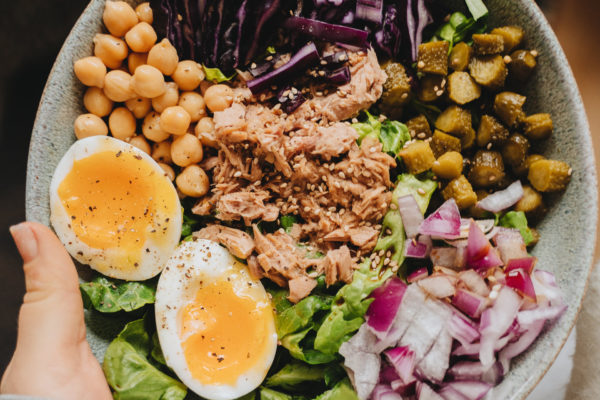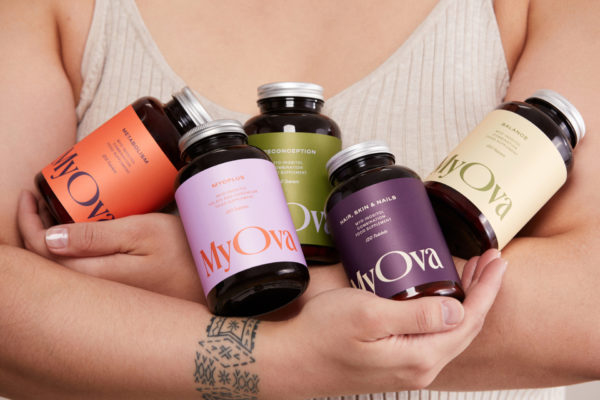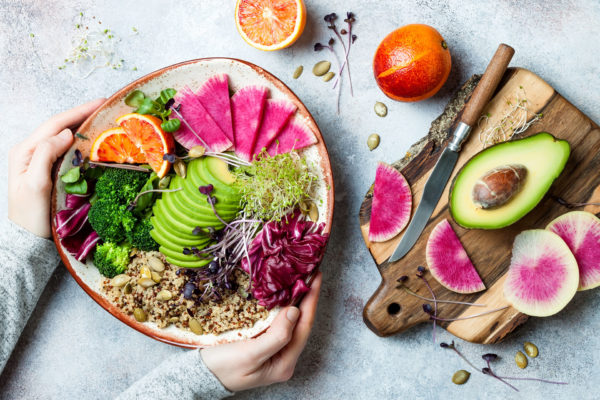Struggling With Veganuary? We Asked A Nutritionist For Her Top Tips
By
1 year ago
The halfway line is in sight

If you’re doing Veganuary this month, firstly, well done: you’re braver than the rest of us. Secondly, how are you finding it? As the halfway line comes into view, you might be running out of steam, whether you’re tired of eating the same recipes or you’re struggling to get all the nutrients you need. We asked nutritionist Kim Pearson for her insight into Veganuary, from the nutrients you might be lacking to what to consider before taking on a vegan diet full time.
Veganuary: Advice From A Nutritionist
View this post on Instagram
What Is Veganuary?
Veganuary is an annual challenge where individuals maintain a vegan diet for the month of January. This means only eating plant-based food – that’s no meat, poultry, fish, seafood, dairy or eggs (some people also avoid honey, though this one is debatable).
What Is The Point Of Veganuary?
People try Veganuary for a range of reasons, whether that’s to reduce animal cruelty, to reduce their carbon footprint, or to improve their health. As the official Veganuary not-for-profit says: ‘Our vision is simple; we want a vegan world. A world without animal farms and slaughterhouses. A world where food production does not decimate forests, pollute rivers and oceans, exacerbate climate change, and drive wild animal populations to extinction.’
Sounds great – so why don’t more people swap to a vegan diet? In simple terms, because it’s very difficult to transition from a diet you know and love to a new plant-based diet that you don’t know how to navigate, especially if you have specific dietary needs. As well as dissatisfaction with your diet, this can lead to nutrient deficiencies, worsening your health.

What Nutrients Do Vegans Lack?
‘There are certain nutrients that can be challenging to obtain solely from plant-based sources,’ nutritionist Kim Pearson tells C&TH. ‘These include Vitamin B12, Omega 3 fatty acids, iron, vitamin D, some amino acids and choline.’
Vitamin B12
‘Primarily found in animal products, Vitamin B12 is crucial for neurological function and red blood cell formation,’ says Kim. ‘Vegans should consider supplementing a B vitamin complex with good levels of B12.’ lovelifesupplements.co.uk
Omega 3 Fatty Acids
‘Omega 3 fatty acids, especially DHA and EPA, are predominantly found in oily fish,’ says Kim. ‘Many of the non-vegan clients I see who eat fish still have suboptimal levels so an algae-based Omega 3 supplements is worth considering.’ cytoplan.co.uk
Iron
‘Iron from plant sources (non-heme iron) is less readily absorbed than from animal products (heme iron). Careful dietary planning and, in some cases, supplementation is required,’ Kim suggests. betteryou.com
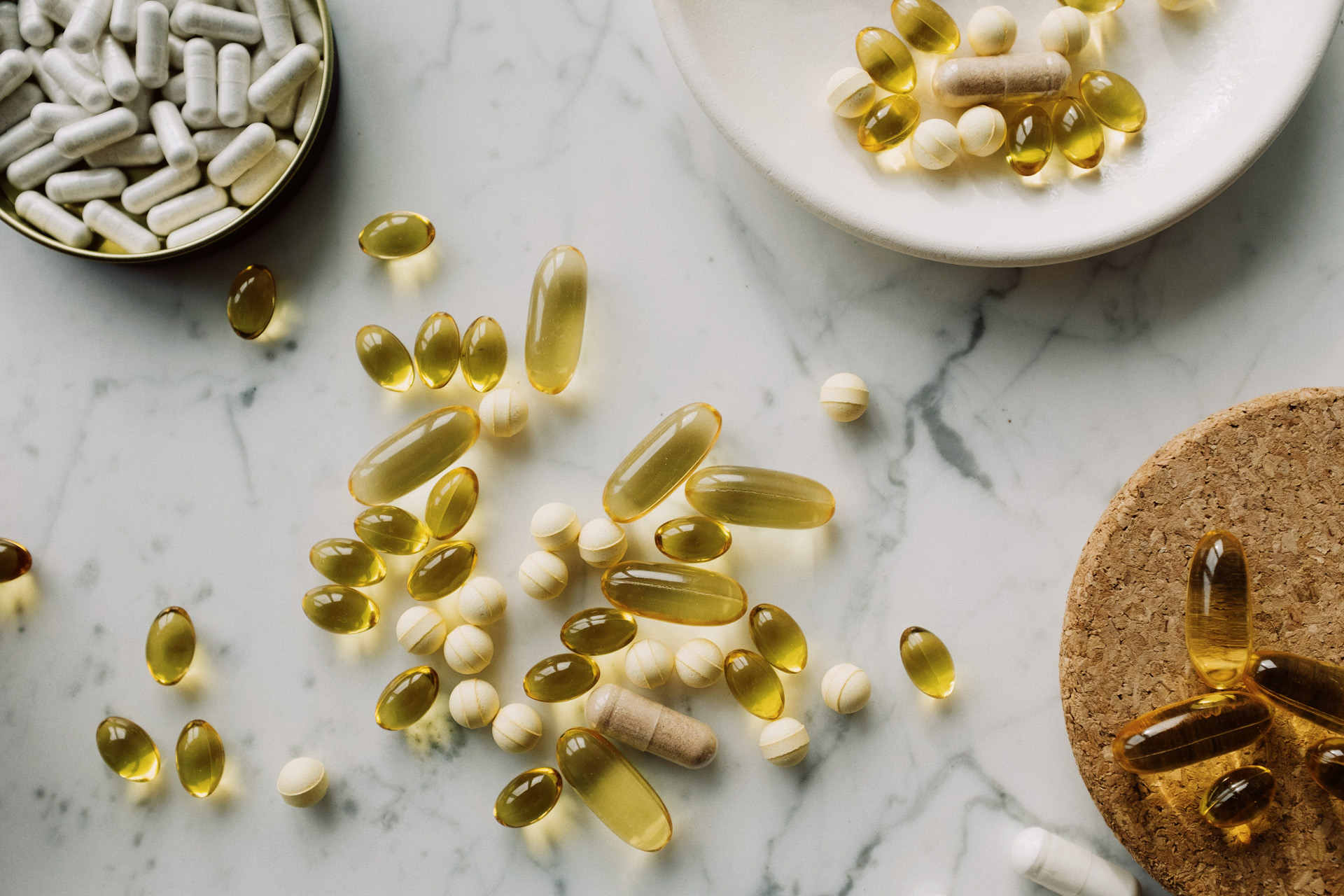
Vitamin D
‘Vitamin D deficiency is an issue across the population as a whole due to lack of exposure to sunlight,’ says Kim. ‘Vegans are even more at risk of deficiency because the majority of whole food sources of vitamin D are from animal sources. The vast majority of us should be taking a vitamin D supplement through autumn and winter months, vegan or not.’ lovelifesupplements.co.uk
Amino Acids
‘While a vegan diet can provide a wide array of amino acids through plant-based sources, there are a few essential amino acids that might require attention to ensure adequate intake,’ says Kim. ‘Methionine and lysine are examples of amino acids found in higher quantities in animal products. Legumes, seeds, and grains can contribute to these amino acids, but it’s essential for vegans to include a variety of protein-rich foods in their diet to meet their requirements. Quinoa, tofu, tempeh, and soy products are valuable sources. Careful planning and combination of different plant-based protein sources help ensure that vegans receive all essential amino acids for optimal health. Supplementation of essential amino acids may also be considered.’ lovelifesupplements.co.uk
Choline
‘It’s often overlooked, but choline is a vital nutrient with several crucial functions in the body,’ says Kim. ‘It plays a key role in cell structure, neurotransmission, and the formation of acetylcholine, a neurotransmitter essential for memory and muscle control. Many of the dietary sources of choline are from animal sources, the most well known being eggs. Because choline is found predominantly in animal-derived foods, vegetarians and vegans may have a greater risk of suboptimal levels. Plant-based sources include cruciferous vegetables like broccoli and nuts such as almonds. Choline can also be supplemented.’
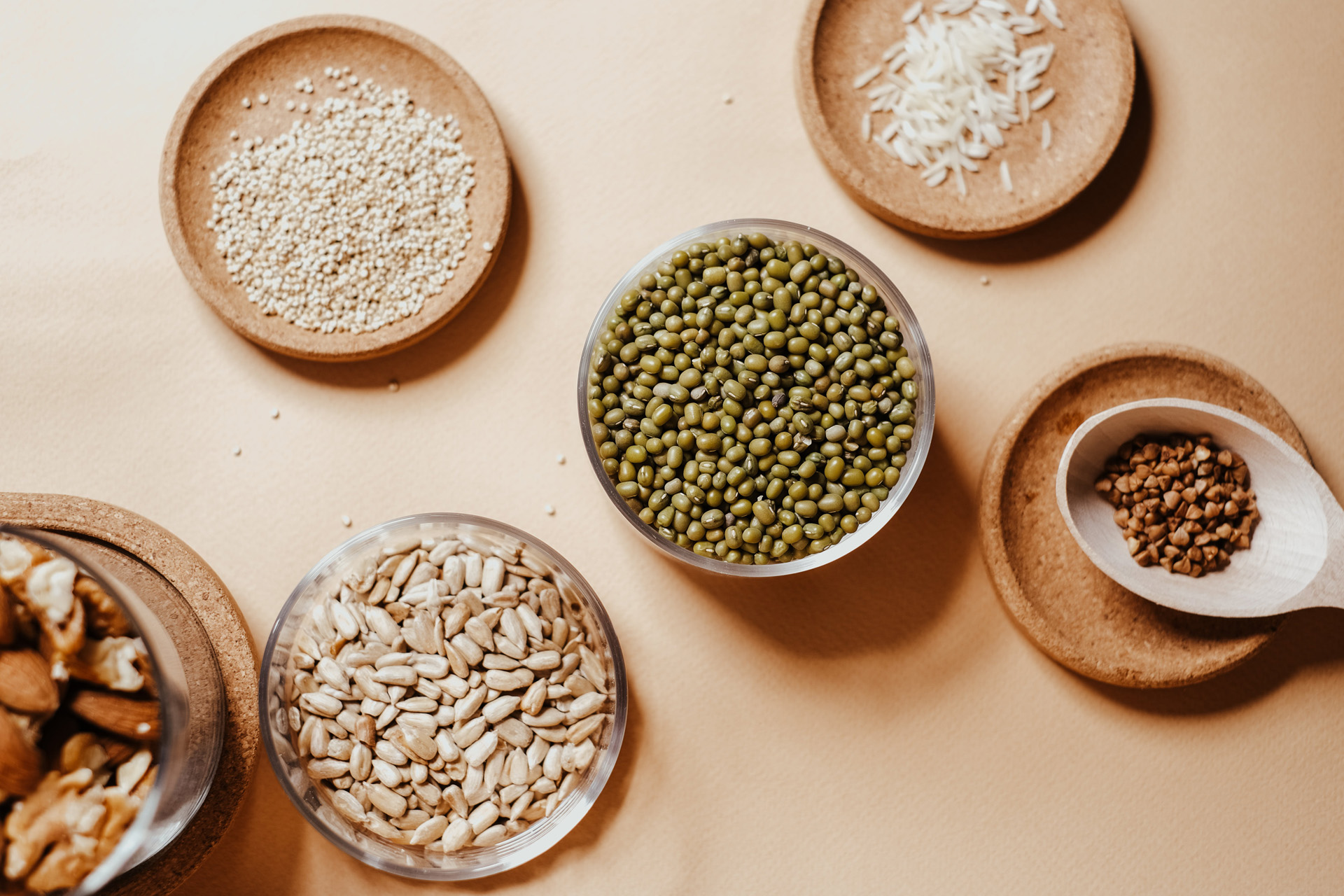
How Can Vegans Get Enough Nutrients?
‘Ensuring a well-balanced, diverse vegan diet based on whole food is a key starting point,’ says nutritionist Kim. ‘Supplements can help to fill the gaps.
‘It’s important to note that some supplements are contraindicated with certain health conditions, medications or while pregnant or breastfeeding,’ Kim warns. ‘Check with your doctor or a qualified nutrition expert prior to taking supplements if this applies to you.’
Am I Suited To A Vegan Diet?
‘Several signs and symptoms may indicate that a diet isn’t suitable for you or may be lacking in essential nutrients,’ says nutritionist Kim. ‘Indicators to watch for include: low energy level, unintended weight changes, mood swings or irritability, digestive issues, hair and / or skin issues, changes in sleep and a weakened immune system can all indicate that a diet may not suit you.
‘If you notice these signs, it’s essential to consult a doctor (ideally one trained in functional medicine) or a qualified nutrition expert,’ Kim recommends. ‘They can help assess your diet, identify potential deficiencies, and provide guidance on how to make necessary adjustments to ensure you meet your nutritional needs.’
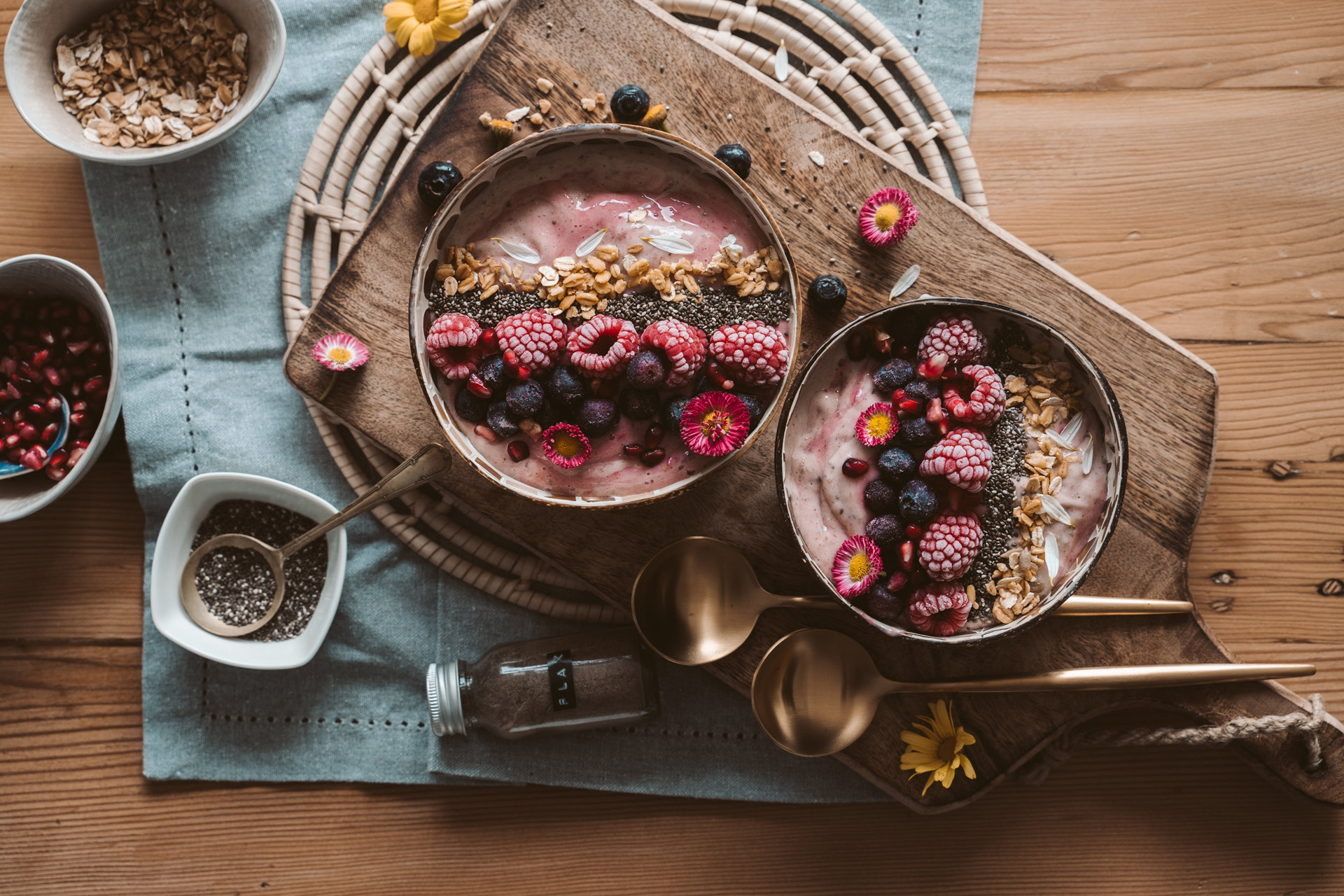
What To Consider Before Going Vegan
‘If you’re considering going vegan, there are a few important considerations to be aware of in order to meet your nutritional needs and maintain optimal health,’ says Kim.
Take A Blood Test
‘It’s a good idea to take a blood test to assess your existing nutrient levels, particularly vitamin D, B12, iron and omega 3. These are commonly deficient on an omnivorous diet as well as on a vegan diet. You can also consider DNA testing to identify how readily your body is able to convert plant forms of nutrients to the active forms our bodies require. This can give an indication as to how well your body is likely to do on a vegan diet and inform supplement choices.’
Plan Ahead
‘Plan a well-balanced diet that includes sources of the nutrients outlined above and consider supplementation to achieve optimal levels,’ Kim recommends. ‘Ensure you get an adequate amount of protein by incorporating sources such as legumes, tofu, tempeh, quinoa, and plant-based protein powders if needed.’ kim-pearson.com
‘Aim for a diverse and colourful array of whole plant foods including fruits, vegetables, legumes, nuts and seeds, herbs and spices,’ says Kim. ‘Planning meals in advance can help you meet your nutritional needs and avoid relying on processed or convenience vegan foods.’
Learn
‘Learn about nutrition and explore various cooking methods and recipes to make your vegan diet enjoyable and sustainable,’ says Kim.
Ask A Nutritionist Or Doctor
‘If needed, consult with a qualified nutritionist or other healthcare professional to ensure your nutritional requirements are met,’ says Kim. ‘If you feel as though you could benefit from professional guidance and a comprehensive approach that will help you establish healthy habits that stick long term, consider working with a nutritionist.’ Visit Kim’s website and book in for a 25 minute complimentary call to find out more.
Kim Peason is a nutritionist and founder of kim-pearson.com




